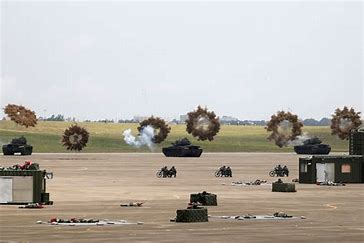
You might be able to buy more than you thought you could deduct from a single year’s tax bill – particularly if you’re a relatively small business. That’s because the US Federal Government has decided that smaller companies can benefit from claiming certain big purchases all at once, instead of letting them depreciate over time as is the norm.
That’s more helpful than it sounds. Think about it. If you buy a costly item, it would ordinarily save you some tax at the end of the year, but depreciation means that you only get to claim part of the value every year for a projected usable lifespan. If you have the cash flow, that’s not a problem, but if you’re already struggling to make a profit, it may mean that you simply can’t afford to buy the things you need to make your business more profitable. It can be an unpleasant Catch-22 situation.
Section 179 tax reductions are, however, pretty complex, and will depend on your business’s current situation. Consult an accountant before committing to a purchase that you hope to invoke this clause for. But what might you use it for? Let’s look at examples of the big-ticket items you might hope to claim under Section 179.
Inefficient machinery and manufacturing equipment could be eating up your profits. You’re working more slowly than you should, using more manual labor, or dealing with breakdowns that derail your production process. It might just be time to go shopping!
Before consulting your accounting specialists, find out just what kind of costs you’re looking at and weigh that against the benefits of improving your processes. Even with a bit of a sweetener on your tax bill, it might prove a bridge too far. Crunch the numbers. If you produce more, would you be able to find a market for it? What would those sales amount to? Are the necessary logistics in place to get your products to market, or will that imply an additional cost? Armed with your figures, discuss your options with your accountants.
Renting commercial property means a monthly cost that buys you nothing but time. Purchasing your own business property, or making improvements to one you already own, increases the value of your business – and you might be able to claim the cost back using Section 179. If you’re in it for the long-term, it certainly makes more sense to buy property than to rent, so although it’s a hefty cost, it’s worth doing if you can raise the necessary funds.
Typically subject to depreciation, you can nevertheless consider claiming a Section 179 tax break for newly-purchased vehicles. If your fleet is crucial to your business and is beginning to age, newer vehicles could ultimately be a cost saving. High maintenance costs, breakdowns, and excessive fuel consumption all add up to expenses that hurt your bottom line. Besides these practical considerations, there are also brand-related ones. Your new vehicles will certainly make a better impression on your customers!
Once again, it’s a question of efficiency: if your office equipment and computer software aren’t up to scratch, everything takes longer to do and ultimately costs you more. If you’ve been waiting to integrate cloud-based and physical software systems, for example, or need an omni-channel customer service platform, you could make your business more competitive by taking the plunge.
As for new office furniture, it’s not just a matter of looking good. Your staff will find work more comfortable and pleasanter if they have well-designed workstations with ergonomic furniture. If you’ve been thinking it’s time for an upgrade but have been hesitating because of cost, you may be holding yourself back for no good reason.
“Personal property” in this context means physical items other than real estate, and they will only qualify if they’re for business use. We’ve already mentioned some examples of this, for instance, office equipment and furniture.
However, other items could fall into this category. For example, if you’re an events company and you purchase a party tent, that would fall into this category very nicely. However, if you don’t plan to use it very often, you probably won’t qualify – Section 179 requires property to be used at least 50 percent of the time.
Since it’s so broad, and could apply to just about any purchased item your business needs, we mention this category on its own. As always, if you’re unsure about an item qualifying you for reduced tax, talk to your accountant!














